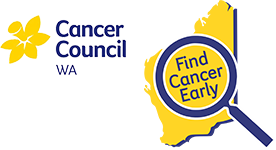Early detection of cancer can be crucial.
I don’t understand blokes putting it off. Just get to the doctor, don’t be frightened.
This article was published in Farm Weekly on 26 July 2018.
WHEN cancer is found in the early stages, it can often be easily removed or treated.
In cases where the cancer has spread, treatment becomes more difficult and the person’s chances of survival may not be as good.
Regional Australians are 20-30 per cent more likely to die within five years of a cancer diagnosis than people living in metropolitan areas.
It isn’t fair that a regional postcode should define a person’s survival outcome.
That’s why it’s so important for regional people to know the early symptoms to look out for and what to do if they find them.
So what are the symptoms to look out for? Blood in your poo, blood in your urine or coughed-up blood, even just on one occasion needs to be discussed with a doctor, clinic nurse or health worker straight away.
If for more than four weeks you have: problems urinating, runny poo, unexplained weight loss, an unusual pain, lump or swelling anywhere in your body, or are short of breath or a persistent cough, see a doctor, clinic nurse or health worker.
If you notice any unusual changes in your body, don’t wait for your next bowel or breast cancer screening test, pick up the phone and make an appointment to see a doctor or drop into your local Aboriginal health service without delay.
Chances are it’s nothing to worry about, but if it is something, it’s much better to find it early and get on with the recommended treatment.
Population cancer screening is for people who aren’t experiencing symptoms and waiting to participate in a cancer screening program could delay your diagnosis and risk a worse outcome.
It’s also very important to be familiar with your skin and know what’s normal for you.
All adults, particularly those over the age of 40, should regularly check their skin.
Look for changes in a spot on your skin, crusty, non-healing sores, small lumps that are red, pale or pearly in colour, new spots, freckles or any moles changing in colour, thickness or shape over a period of weeks to months.
Don’t rely solely on an annual skin check.
Skin cancers can grow quickly, so if you notice any of these symptoms, see your doctor as soon as possible.
With a bit of practice, most people can check their whole body in 15 minutes.
You will need to undress completely and use a well-lit room and a mirror.
Non-melanoma skin cancer is likely to develop on skin most often exposed to the sun, but a melanoma (the most dangerous type of skin cancer) can develop anywhere, so check your whole body.
The bottom line is that people, especially those aged over 40 in regional WA, need to have any symptoms checked out by a doctor, clinic nurse or Aboriginal health worker – there are no excuses.
More information: visit findcancerearly.com.au or call 13 11 20 to speak with a cancer nurse. For information about how to check your skin, go to myUV.com.au/skincancer.
Visit the Farm Weekly website here
